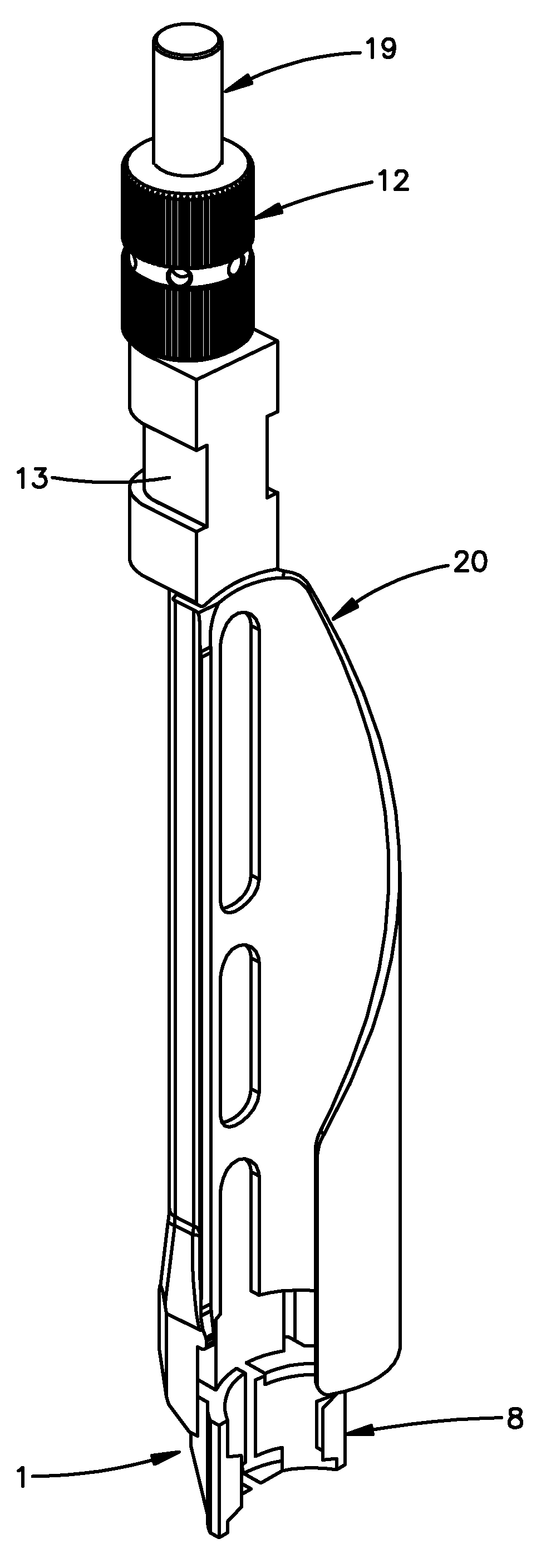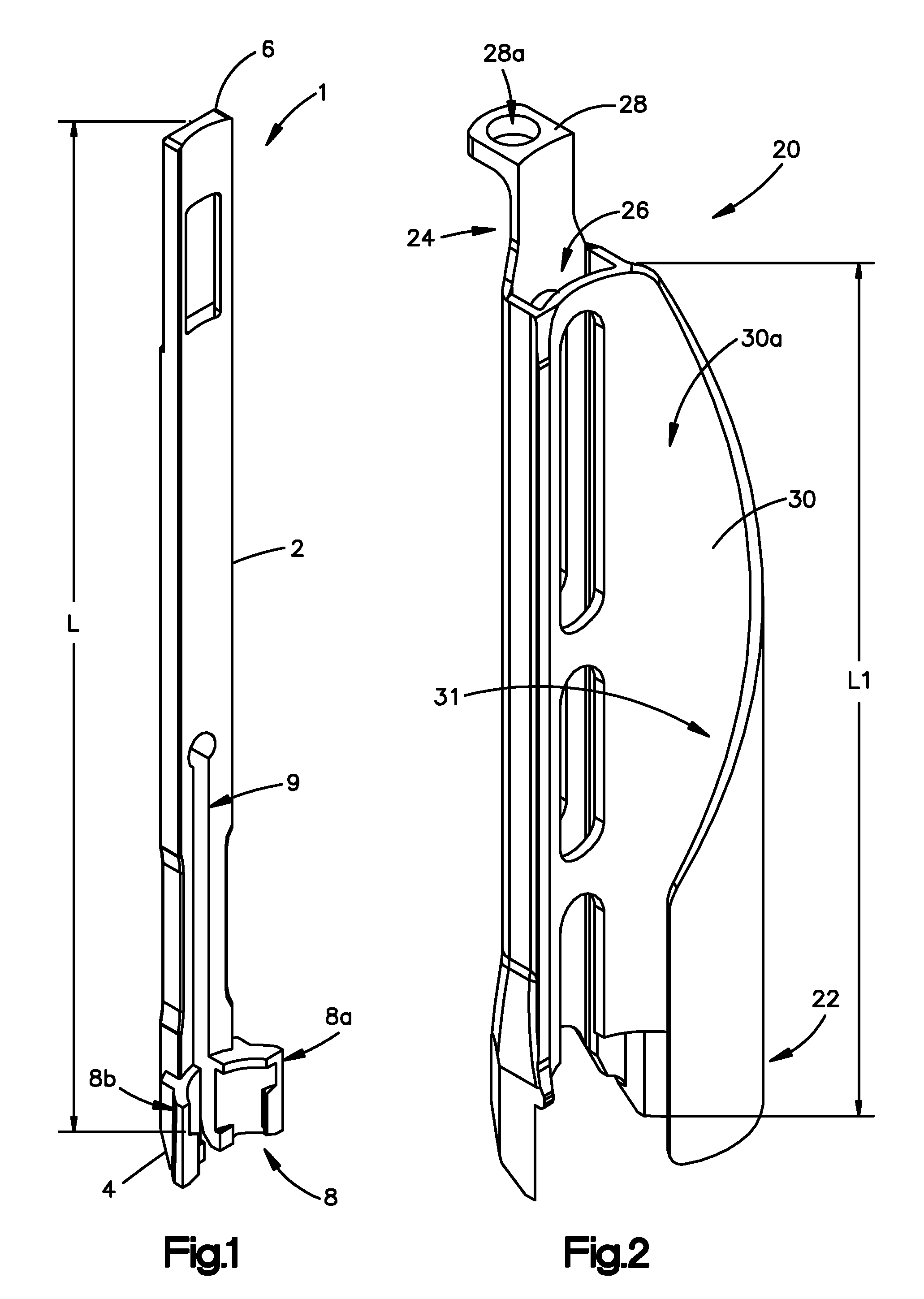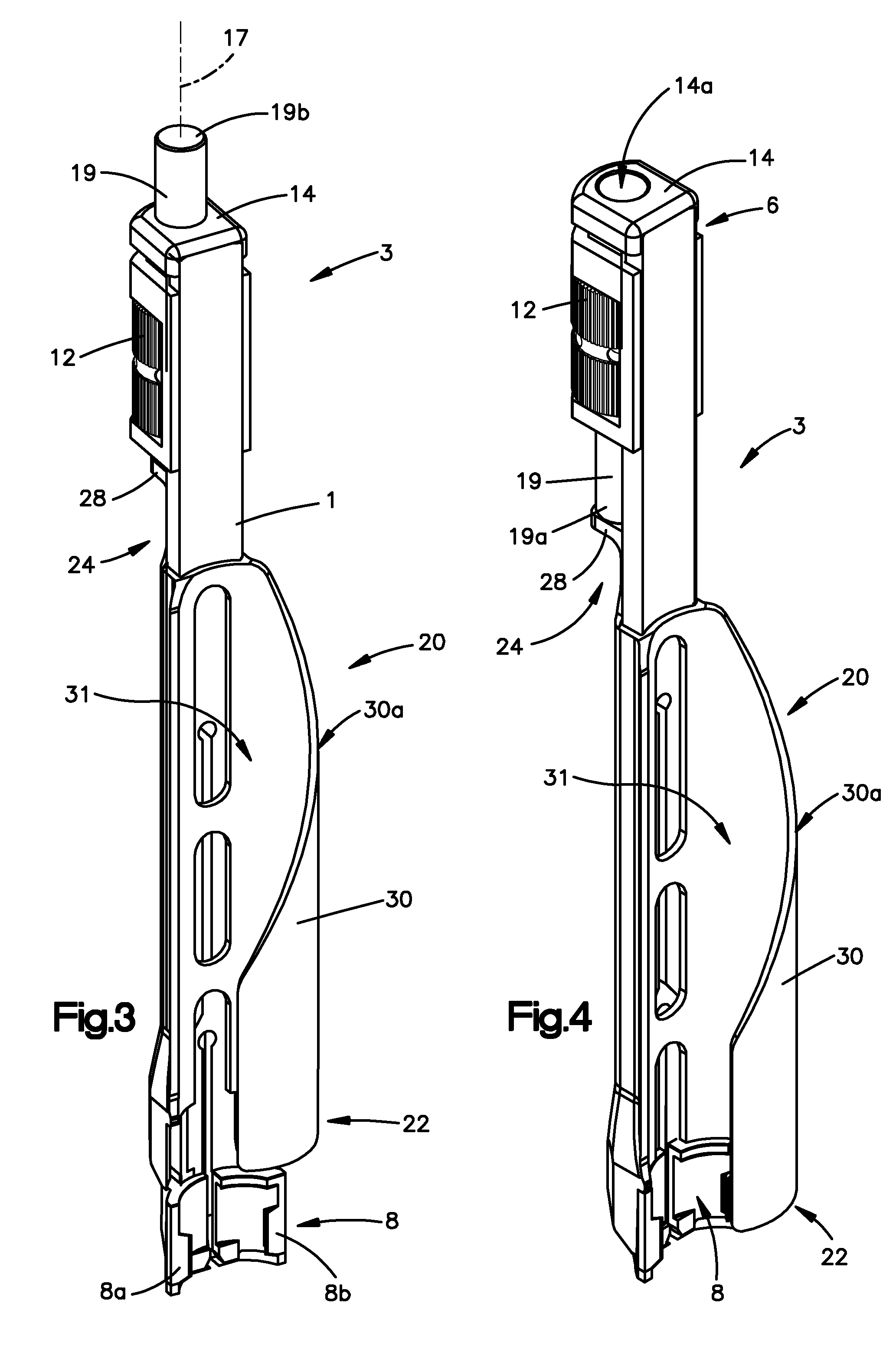Minimally invasive fixation system
a fixation system and minimally invasive technology, applied in the field of minimally invasive fixation system, can solve the problems of more trauma to the body and the possibility of interference between cannulas
- Summary
- Abstract
- Description
- Claims
- Application Information
AI Technical Summary
Benefits of technology
Problems solved by technology
Method used
Image
Examples
Embodiment Construction
[0048]Certain exemplary embodiments of the invention will now be described with reference to the drawings. In general, such embodiments relate to a fixation system, by way of non-limiting example, a less invasive or minimally invasive fixation system for posterior spine fixation surgery using pedicle screws, preferably in the lumbar region of the spine. The fixation system including, for example, the implants and instruments are not limited to spine fixation, or posterior spine fixation and may have other uses and may come in different forms and structures. For example, the bone anchors are commonly shown and referred to as pedicle screws and may be polyaxial or mono-axial pedicle screw, as well as hooks (both mono-axial and polyaxial) or other fasteners, clamps or implants.
[0049]An embodiment of a fixation system in accordance with the present invention is directed to a minimally invasive system for posterior spinal fixation using pedicle screws, preferably in the lumber region of ...
PUM
 Login to View More
Login to View More Abstract
Description
Claims
Application Information
 Login to View More
Login to View More - R&D
- Intellectual Property
- Life Sciences
- Materials
- Tech Scout
- Unparalleled Data Quality
- Higher Quality Content
- 60% Fewer Hallucinations
Browse by: Latest US Patents, China's latest patents, Technical Efficacy Thesaurus, Application Domain, Technology Topic, Popular Technical Reports.
© 2025 PatSnap. All rights reserved.Legal|Privacy policy|Modern Slavery Act Transparency Statement|Sitemap|About US| Contact US: help@patsnap.com



